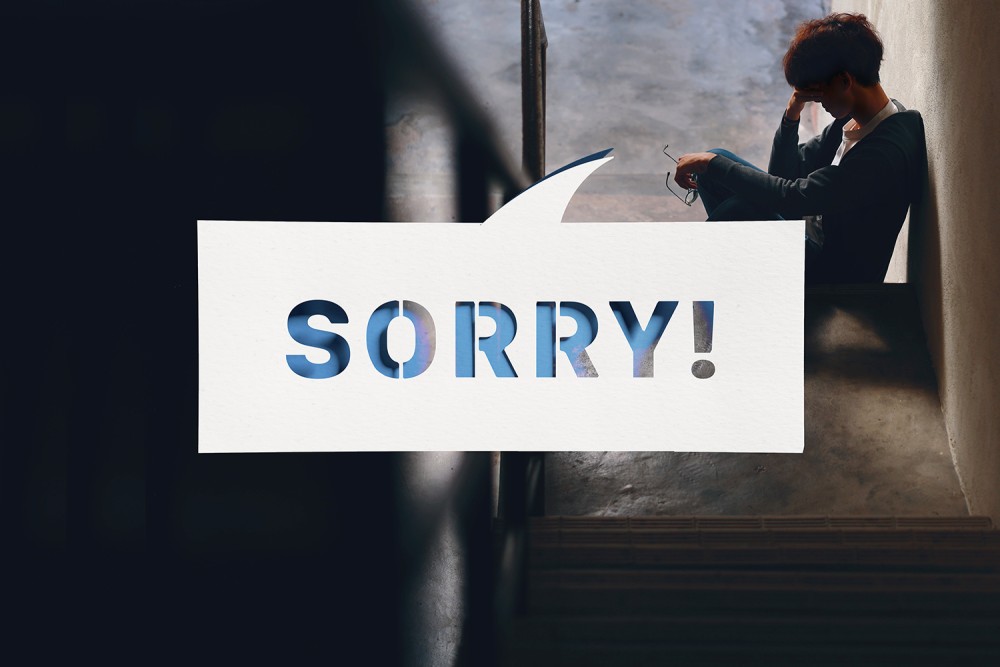The apology deficit
Ours is an era of cultivated transgressiveness, in which leaders vice signal their lack of interest in apologizing when they’re wrong.

Century illustration (Source images: Getty)
Life provides us plenty of opportunities to mess up and get things wrong. Our capacity to offend, make mistakes that hurt others, and commit painful errors is a daily reality of the human condition. Fractured relationships are typically the consequence. But forgiveness, or the quest for it across multiple religious traditions, helps restore a surprising number of those broken relationships. And apology, while not an explicitly theological concept, does its own good work to heal the world from our missteps.
It now appears, however, that we’re in a political and historical moment when the idea of delivering a genuine apology has fallen out of fashion. Public leaders who admit fault, own a mistake, feel a sense of regret, and have an interest in restitution are about as rare as a candidate who refuses a political endorsement. “The idea now is to never apologize, never back down,” says Amy Walter, editor in chief of the independent, nonpartisan newsletter The Cook Political Report. “If you do apologize, you’re going to lose the support of your base, because they want you to be a fighter.” Walter shared this assessment in the aftermath of Joni Ernst’s refusal to apologize to constituents in late May, following the Iowa senator’s sarcastic response to voters’ concern that people could die if cuts to Medicaid were implemented. She doubled down with derision the next day, mocking her critics and displaying disdain for the whole idea of apologizing.
Read our latest issue or browse back issues.
To be clear, the resistance to admitting mistakes is a bipartisan or, more accurately, a completely human affair. But in the Trump era, we’re witnessing what I would call cultivated transgressiveness: leaders vice signaling their lack of interest in apology for the sake of demonstrating toughness and defiance to their base. “Never apologize, Mister, it’s a sign of weakness,” John Wayne’s character famously says in the 1949 western She Wore a Yellow Ribbon. Seventy-five years later, is Wayne the model for public officials trying to look aggressive?
Or perhaps Donald Trump is the de facto leader of the apology-as-weakness movement, since the president dreads any suggestion of personal weakness. “I fully think apologizing is a great thing, but you have to be wrong,” Trump told Tonight Show host Jimmy Fallon some years ago. “I will absolutely apologize sometime in the distant future, if I’m ever wrong.” But when far-right influencers trash the very notion of empathy for people hurt by others’ actions, the movement to discredit apology is obviously much larger than any one person. Two recent books highlight this trend, a trend which makes no room for humility, the one virtue that happens to be fundamental to a sincere apology: Toxic Empathy: How Progressives Exploit Christian Compassion, by Allie Beth Stuckey, and The Sin of Empathy: Compassion and Its Counterfeits, by Joe Rigney.
Interestingly, nobody in the Bible ever apologizes for something. There are a few qualified apologies of a sort, as when Saul responds to his disobedience to the Lord by being sorrier that he got caught than humble enough to admit his wrong (1 Sam. 15). Expressions of pity and sorrow are common. So are corporate confessions and announcements of forgiveness. Repentance, too, is evident on many pages, as people turn around their life and change their mind. But apology as a concept is largely absent from scripture.
“I’m sorry” may not appear in the Bible, but that shouldn’t dissuade us from longing to witness more of it in our society. Computers, college, and cancer research aren’t in scripture either, yet they contribute to making life better.
At one point in his ministry, Paul acknowledges the stiffness of his rebuke of Galatian believers. He tells them of his desire to be in their company so that he might work to change his tone (Gal. 4:20). Perhaps a change of tone is the most we can hope for right now among those who see no value in apologizing to those they’ve wronged.







